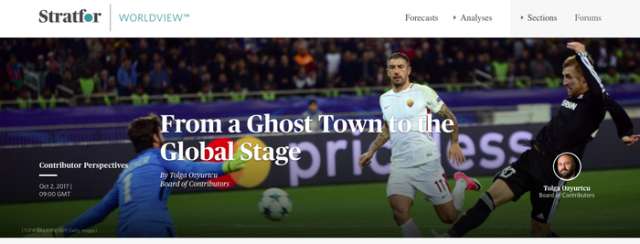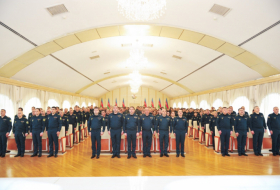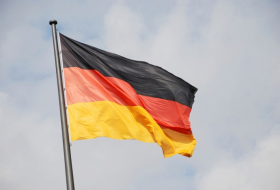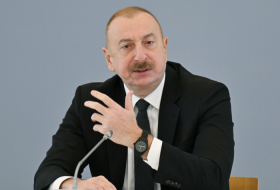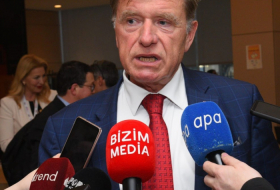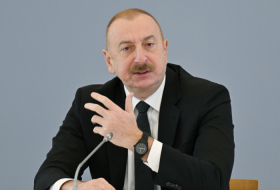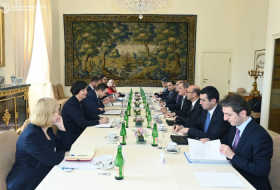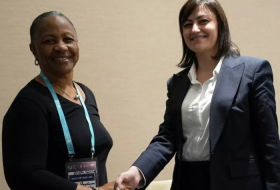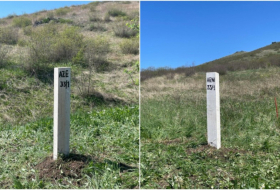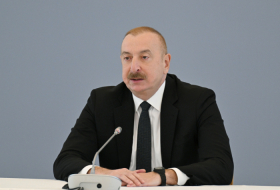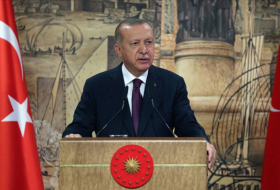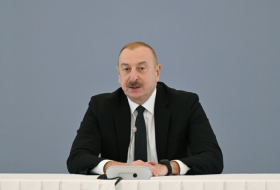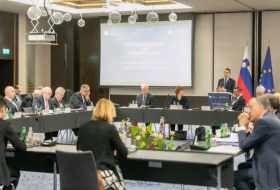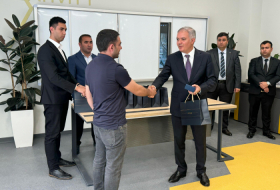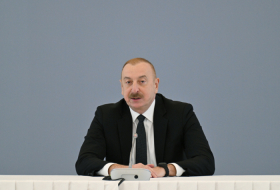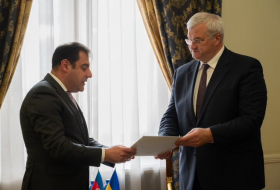In one matchup of titans among last week's offerings, Paris Saint-Germain blanked Bayern Munich 3-0 at the Stade de France while a "David," Cypriot champion APOEL Nicosia, came up short against its Goliath opponent, London's Tottenham Hotspur. To its credit, APOEL is a familiar name to fans of European soccer, regularly dominating their domestic league and navigating the late summer qualifying rounds to earn the right to compete in the Champions League or the less prestigious (but still important) UEFA Europa League. However, from time to time, a team will emerge in the competition that sends even the most obsessive fans scrambling to figure out just who they are and where they came from.
This year, that honor belongs to Qarabag Futbol Kulubu, the champions of Azerbaijan. On Sept. 27, Qarabag hosted Italy's legendary Roma in Baku, marking the debut of the Champions League in the country of 10 million. Roma held off a spirited comeback by The Horsemen before their home fans, hanging on for a 2-1 victory. But Qarabag's David status is only one of the Azerbaijani club's more intriguing storylines. In addition to a roster including one of the most appropriate athlete names in history (Qarabag defender Qara Qarayev), the club sports a most unusual history, inextricably linked to one of the most disputed territories in the world and an exemplary case study in the propaganda power of modern sport.
_1507220914.png)
The Origins of The Horsemen
First, a bit of the history. The club was founded in 1951 in Agdam, which sits in the region of Nagorno-Karabakh. In its first few decades of existence, Qarabag experienced varying levels of success, including a 10-year span when it couldn't afford to field a team, as well as occasional name changes to Mehsul and Shafaq. By 1988, the club had once again settled on the Qarabag name and won a league title. Then, the violence began. As the Soviet Union crumbled, Armenian and Azerbaijani forces went to war over control of Nagorno-Karabakh, a region that both countries historically claim. Six years of battle left upward of 30,000 dead and displaced hundreds of thousands more. At the time of the conflict, the region fell within Azerbaijan's Soviet-designated borders; those borders remain today, but the region has been controlled by the so-called Nagorno-Karabakh Republic, essentially a de facto region of Armenia.
Agdam was a critical outpost during the war. As the Armenians conducted an aerial campaign against Agdam, Qarabag played on, emerging as a symbol of resilience for the Azerbaijani people. The club's totemic status was further boosted by Allahverdi Bagirov, the beloved head coach of the team, who enlisted as the conflict broke out in 1988 and became a national hero when he led his battalion in saving hundreds of Azerbaijanis during the 1990 onslaught at Khojali. By 1993, with Qarabag's stadium and Agdam itself nearly leveled, the city was occupied by Armenian forces, becoming a ghost town that remains largely uninhabited to this day.
A New Home in Baku
Like the rest of Agdam, the club was internally displaced, eventually setting up shop in the Azerbaijani capital, Baku. Despite playing some 322 kilometers (200 miles) from its original home, Qarabag kept its name and continued to celebrate its regional heritage, becoming something of a national symbol by the turn of the century despite hovering on the verge of bankruptcy. The club was saved in 2001 when the late Azerbaijani President Heydar Aliyev helped bring Qarabag under the control of Intersun, a state-backed holding company. Intersun is a diversified giant, run by the Kurdish-Iranian-Turkish Gozal brothers, who have close (and some say shady) personal and business ties with current President Ilham Aliyev, son of Heydar. The younger Aliyev has long understood the link between the world of sport and geopolitical legitimacy, as well as that between sport and big-budget investment. In addition to serving as a multiterm president, Aliyev has been the head of the country's Olympic committee since 1997; one of his crowning achievements was the successful bid for Baku to host four matches in the 2020 European soccer championships.
With the financial backing of Intersun, Qarabag has emerged as the premier side in 21st-century Azerbaijani soccer. Increased spending has brought in better coaching, support staff and international players, all in the (now realized) hope of ascending to the higher reaches of European soccer. Even though there is little realistic hope that Qarabag will emerge from its Champions League qualifying group, its presence in the tournament amounts to a major victory in branding for the Azerbaijani government, whose inability to regain control of Nagorno-Karabakh remains a frustrating geopolitical failure. To the tens of millions around the world watching the Champions League, the name (and the region) is now associated with Azerbaijan, not Armenia. Or, as an Armenian commentator in The Independent put it, "It's a small part of their wider propaganda game. They name the club Karabakh and then promote it as being Azerbaijan." In soccer-symbolic terms, Armenian frustration is understandable: Not only is Armenia's national league much poorer than its neighbor's, the politically unofficial status of the Nagorno-Karabakh region means that any team actually playing there would be ineligible to participate in UEFA-sanctioned competition. In other words, only by leaving its home could Qarabag claim it for Azerbaijan.
Tolga Ozyurtcu, Ph.D., is a clinical assistant professor in the Department of Kinesiology and Health Education at the University of Texas at Austin.
More about: #Azerbaijan #QarabagFK








